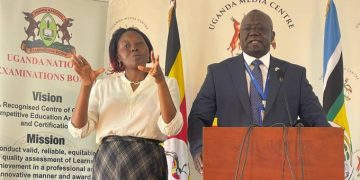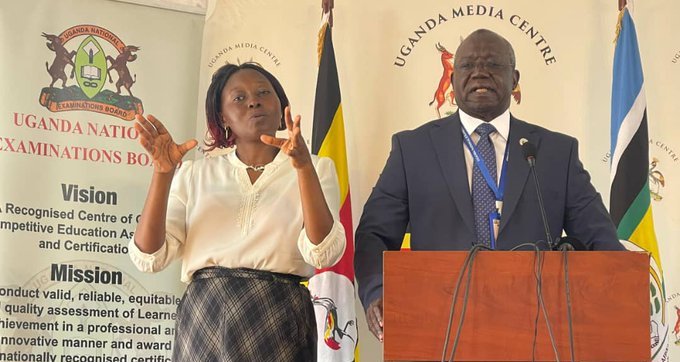The Uganda National Examinations Board (UNEB) has officially released the 2025 timetables for the Primary Leaving Examinations (PLE), Uganda Certificate of Education (UCE), and Uganda Advanced Certificate of Education (UACE), marking a significant milestone in the country’s academic calendar.
Speaking at the release event, UNEB Executive Director Dan Odongo confirmed that the examinations will begin on October 10, 2025, with the briefing of UCE candidates. The PLE will follow on October 31, while UACE exams will commence on November 7, 2025.
“This is the second time UNEB will be assessing candidates under the Competency-Based Curriculum for UCE,” Odongo said. “Heads of Centres can access the timetables from their school portals. Hard copies will also be provided along with other stationery. We have printed enough copies for all candidates, and schools must ensure that every candidate receives a copy as part of the preparation process.”
Accessibility and Special Needs Provisions
Odongo emphasised UNEB’s commitment to inclusivity, noting that Braille versions of the UCE and UACE timetables have been prepared for learners with visual impairments under the Special Needs Education (SNE) category.
“We want every candidate, including those with special needs, to access the examination timetable in a timely and convenient manner,” he explained. “Schools should display the timetables on noticeboards for students, parents, and other interested parties.”
Candidate Statistics Show 7.5% Increase
UNEB revealed that the total number of registered candidates in 2025 has increased by 7.5%, rising from 1,308,998 in 2024 to 1,416,468 this year.
PLE candidates: 818,010 (2.5% increase), UCE candidates: 432,025 (12.1% increase), UACE candidates: 166,433 (14.7% increase) and SNE candidates: 4,802 (4.5% increase).
“For the first time in many years, 51.5% of the candidates are female, while 48.5% are male,” Odongo noted. “This reflects the steady progress Uganda is making in bridging gender gaps in education.”
Funding and Continuous Assessment
Of the total candidates, 719,016 (51%) are under the Universal Education Programmes, while 697,452 (49%) are privately sponsored.
Under the new Competency-Based Curriculum, Continuous Assessment (CA) scores will contribute 20% to the final results, while the end-of-cycle examinations will account for 80%.
“We remind head teachers that all CA and project scores must be submitted by September 30, 2025,” Odongo warned. “Failure to do so may jeopardise candidates’ final results.”
Cautions on Misconduct and Fake SNE Cases
Odongo also issued a stern warning against cases where schools report “non-existent SNE candidates” to gain unfair advantages, such as unnecessary deployment of sign language interpreters.
“We have noted with concern that some head teachers are abusing this provision,” he said. “Such practices are unacceptable and will be met with strict disciplinary action.”
Candidates were further warned against engaging in indiscipline or malpractice, with UNEB promising heightened vigilance throughout the examination season.
Resources for Candidates
Odongo concluded by encouraging schools and candidates to purchase updated Question Bank booklets for PLE, UCE, and UACE exams, including the first-ever Question Bank for the new Lower Secondary Curriculum, available at the UNEB Publications Office.
“With these resources and timely access to timetables, we believe candidates will be well-prepared for the 2025 examinations,” Odongo said.











